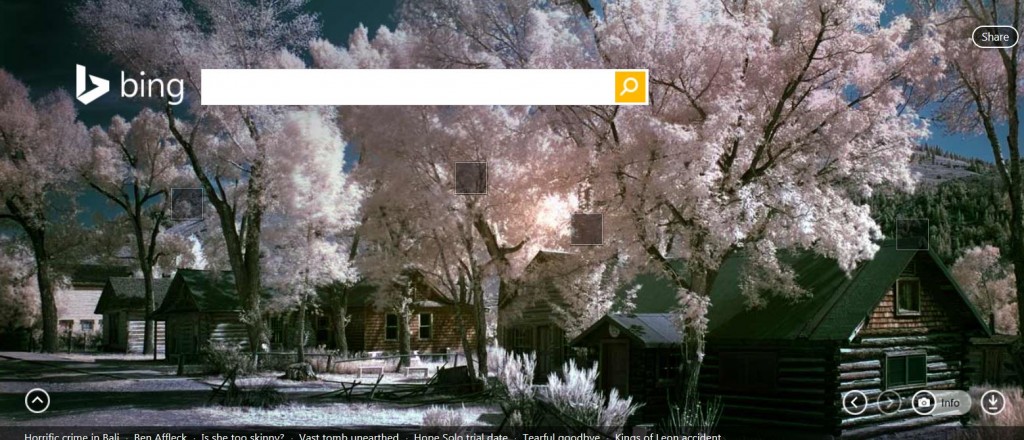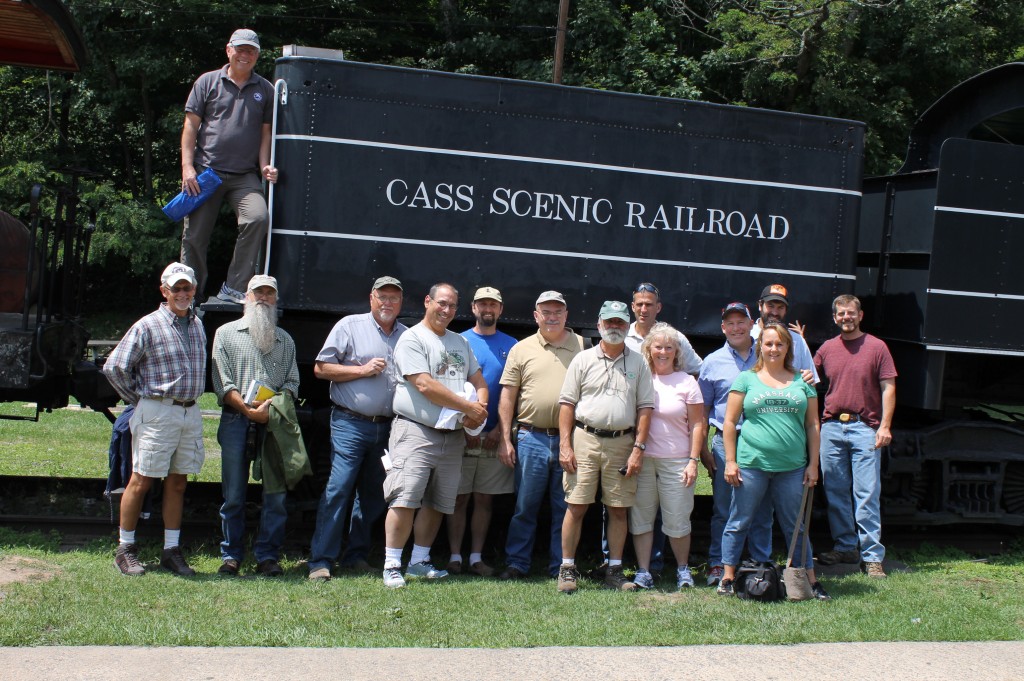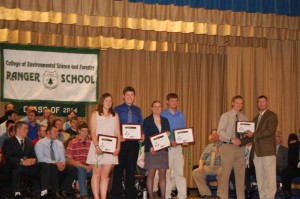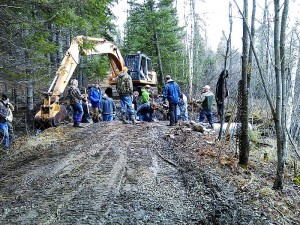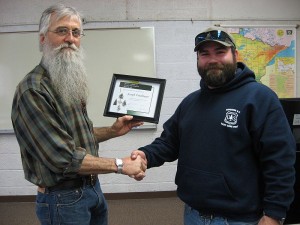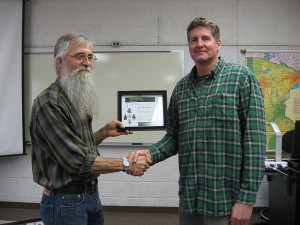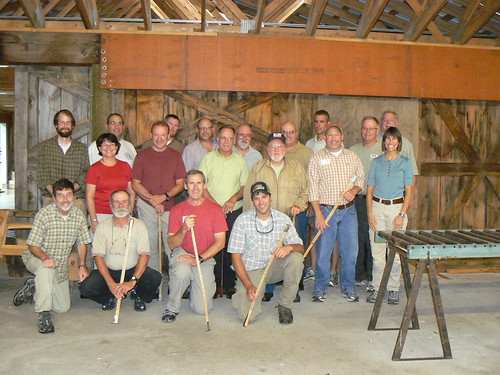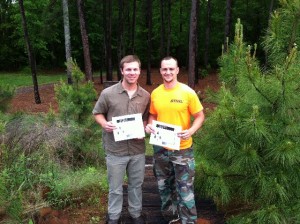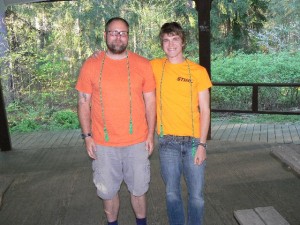This article originally appeared in the February 2014 edition of The Forestry Source.
By Jon Neumann
The SAF student chapter at Itasca Community College, in Grand Rapids, Minn., was formed in Sept. 25, 2012. Although we are a relatively new organization, we have been staying active with projects for the University of Minnesota. Our first project was a thinning near Warba, Minn. The treatment area was an experimental planting of larch and red pine designed to utilize density in substitution for age in evaluating between-tree competition. The study had outlived its usefulness, and the high density was impacting growth, crown development, and overall tree vigor. It was obvious that some trees needed to be removed from this stand.
Ten students volunteered for this project. Although none of us had any prior experience thinning a stand, we had three students with wildland firefighting experience and, through coursework at ICC, also had the S-212 chainsaw certification. The rest of us were not quite so skilled, but we managed to mark the trees to be cut, swamp out the cut logs, and skid them with pickup trucks. While we attempted to select trees that opened up the canopy for the best trees, we also removed trees that had damage, such as from porcupines. It was interesting to see the difference a thinning makes in a young stand. The resulting piles of non-merchantable material will be burned to reduce potential bark beetle problems.
This project provided some great experience for our chapter members. Best of all, we did it safely — there were no major injuries. We completed this project in about five hours (seven, if you include the pizza party afterwards). We look forward to doing more projects in the future.
In addition to the thinning project, the student chapter completed bud capping on planted white pine on the University of Minnesota grounds. With the money we made from the thinning project and the bud capping, plus a generous contribution from an anonymous donor, we were able to help pay for about a dozen student chapter members to attend the state SAF meeting in Walker, Minn., in January. There was a lot of interest in this meeting, as we are enthused about being active and learning more about the forestry profession.
Jon Neumann is chair of Itasca Community College student SAF chapter. The college’s natural resources program, leading to the associate of applied science degree, is accredited by the Society of American Foresters (SAF). Itasca CC is also one of more than twenty five member colleges that make up the Council of Eastern Forest Technician Schools (CEFTS).
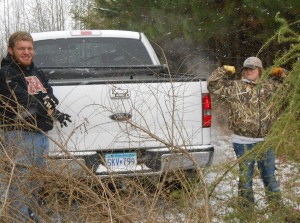
Cooper Blau (left) and Sybil Wellington, members of the Itasca Community College Student SAF Chapter, prepare to skid trees cut during a thinning project.
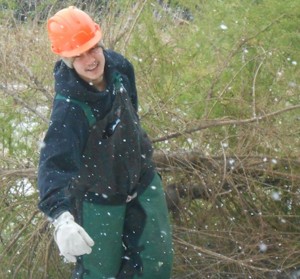
Itasca Community College student SAF chapter member Shane Jarvi swamping trees cut during a recent thinning project.
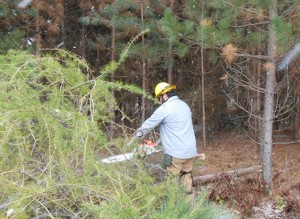 Itasca Community College Student Joe Friedmeyer was one of 10 SAF Student chapter members who helped thin a stand of larch and red pine last year.
Itasca Community College Student Joe Friedmeyer was one of 10 SAF Student chapter members who helped thin a stand of larch and red pine last year.

